


Today, IBC has completely changed India's business landscape. Before IBC, one of the main enemies of doing business was non-payment or untimely payment of dues, leading to a cash crunch. Due to long and time-consuming litigation, it was hard to recover the money. However, IBC has completely changed that—it has made recovering money fast and efficient. If your claim exceeds the prescribed threshold limit, you can threaten the business entity to initiate insolvency proceedings.
The programme contains the following:
- IBC essentials
- Initiating insolvency process
- Filing by operational and financial creditors
- Insolvency resolution process
- Fast-tracks and pre-packs
- Corporate asset valuation
- Liquidation
- Insolvency litigations and related drafting
The path contains 2 courses given below.
Learn More
PROGRAMME COURSES
Course List

ACL3: 23. Insolvency Law
Often business entities find it difficult to file an insolvency application before the NCLT. This intense course on IBC Practice covers various aspects of the Insolvency and Bankruptcy Code, 2016, including the filing procedure of insolvency applications before the NCLT.
Learn about the course
28 January 2023 - 15 December 2024

ACL3: 24. Corporate Assets Valuation under the IBC
Learn how to conduct corporate valuations in an IBC scenario. The course covers several valuation approaches like Market Approach, Income Approach, Asset Approach, etc.
Learn about the course
28 January 2023 - 15 December 2024
What's included?
Who Should Take This Programme?
Legal professionals and students: The team at EBC Learning has designed this programme to enable a student to pursue a career in IBC. The programme deals with many practical aspects of IBC, filling in IBC, the interplay between company law, competition law and M&A. It is primarily a professional course, however, law students can take the programme early on in their career to get an edge over others and excel in their internships. The course speakers are highly qualified practitioners who can help one build their IBC practice.
The programme specifically focuses on the filing system, the appeal procedure, the discussion of landmark cases in IBC, and the emerging jurisprudence in IBC, helping a professional establish a flourishing career in IBC.
Stakeholders like Creditors and Corporate Debtors and CA: This course can also be taken up by various stakeholders like creditors and corporate debtors, and CAs. This course focuses on the valuation process in IBC, the entire life cycle starting from the issuance of a demand notice to the initiation of CIRP.
Corporate teams and in-house counsels: Given the rapid change in compliance requirements, very often, in-house counsels of corporations are unable to get proper exposure and the necessary training in IBC matters. In-person re-training and upskilling can prove costly and often requires time off work. An online course with classes on weekends is the ideal solution. Business owners can use this course to train their teams in IBC matters. In the programme, you also make valuable connections with professionals across India, which can be a crucial resource in times of need.
What are the career opportunities after this Programme?
The world of insolvency is far more dynamic than many may imagine. Beyond courtroom dramas and restructuring battles lies a diverse landscape of career opportunities, each offering unique challenges, rewards, and paths to professional fulfilment. With EBC Learning's Insolvency Law programme, you will gain the specialised knowledge and practical skills to navigate this exciting field and carve your own path to success.
1. Law Firms:
• Top-Tier Firms: Prestigious firms hire insolvency specialists to tackle high-stakes insolvency cases. The clients pay big bucks to the firms and therefore the lawyers can command impressive salaries for their valuable skills.
• Mid-Tier Firms: These firms offer the sweet spot between challenging work and early responsibility, specialising in specific industry sectors and leading smaller to mid-sized insolvency proceedings. The lawyers associated with mid-tier firms have immense growth potential.
• Boutique Firms: These firms offer focused expertise in niche practices, ensuring personalised attention and in-depth knowledge in areas like bankruptcy litigation or corporate restructuring. Work experience at boutique firms leads to quicker specialisation.
2. In-House Counsel:
• Corporations: Companies require trusted advisors to guide them through complex insolvency situations, whether navigating internal restructurings, negotiating debt agreements, or pursuing strategic acquisitions of distressed assets. The in-house counsel jobs are rewarding and ensure stable careers.
• Financial Institutions: Banks, insurance companies, and other financial institutions engage insolvency experts to ensure compliance, manage risk, and safeguard their interests in insolvency scenarios. Job opportunities in this sector are numerous.
3. Government and Regulatory Bodies:
• Insolvency Regulatory Authority of India (IBBI): Insolvency experts are engaged as Researcher Associates and Legal Consultants. Contribute to shaping the future of insolvency law at the national level, crafting regulations, research and analysis, advising policymakers, developing training programs and educational materials and fostering transparency within the ecosystem.
IBBI also conducts two examinations for careers in the field of Insolvency—the Limited Insolvency Exam and the Valuation Exam. Conceptual clarity gained through EBC Learning’s Insolvency Law and Corporate Asset Valuation programme will aid the aspirants in clearing these exams.
• NCLT and NCLAT: Law graduates are engaged by these quasi-judicial bodies as Law Research Associates and Assistant Registrars on a contractual basis. An opportunity to assist the Judicial and Technical members in researching and analysing legal issues relevant to ongoing cases is an exciting prospect. The disputes under the IBC are usually complex and involve crores of rupees.
4. Consulting:
• Consulting Firms: Consultancy firms have booming business expertise to advise clients on all aspects of insolvency, from pre-distress planning to turnaround strategies and post-insolvency reorganisation.
• Independent Consultants: Build your own practice, catering to specific industry sectors or niche areas, offering tailored solutions to clients facing financial difficulties.
5. Academia and Research:
• Professorships and Research Institutes: Teachers with knowledge of highly specialised fields such as insolvency law are sought by institutes. Share your knowledge and contribute to the advancement of insolvency law through teaching, research, and scholarly publications.
• Think Tanks and Advocacy Groups: Influence policy and advocate for reforms, shaping the future of the insolvency landscape and protecting stakeholder interests.
6. Beyond the traditional paths:
• Journalism and Media: Shine a light on critical issues and inform the public about the complexities of insolvency through investigative reporting, insightful analysis, and engaging storytelling.
• Entrepreneurship: Identify opportunities within the insolvency ecosystem, develop innovative solutions, and contribute to building a more efficient and effective system.
Remember, your career journey is unique. With EBC Learning's Insolvency Course, you will gain the knowledge and skills to confidently explore these diverse opportunities and forge your path to success in this ever-evolving field. So, take the first step, enrol today, and unlock a world of possibilities within the fascinating realm of insolvency.
How Should One Approach This Course?
We have designed the course to make it as flexible as possible so that you may easily fit it into your schedule. The programme includes videos, texts and live lectures. To make the most of the programme, one is expected to watch the videos, and read the texts during the week — i.e before attending class on the weekend. In this way, you may watch and understand all the content at your leisure during the week and attend practical workshop-like classes on weekends.
Do note that you may find it hard to follow the workshop-like classes in case you have not pre-watched the videos that are a part of each course and read the pre-reading materials. The course also requires writing pre-class notes where you can comment on the readings and videos. The instructor uses these notes to address your queries in class.
Mode of Instruction & Class Timings
The live sessions will be conducted online, and courses will be available on the EBC Learning platform (ebclearning.com).
Session Timings: Afternoon & Evening Sessions on Saturdays.
E-Books Access from EBC Reader
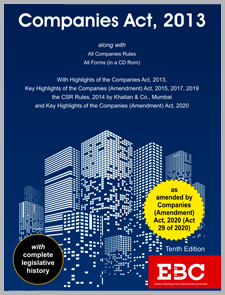 |
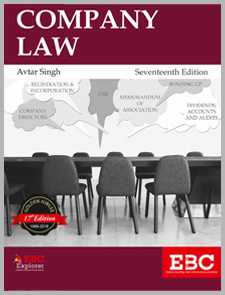 |
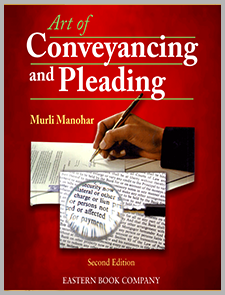 |
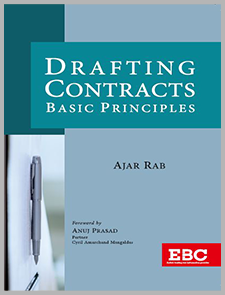 |
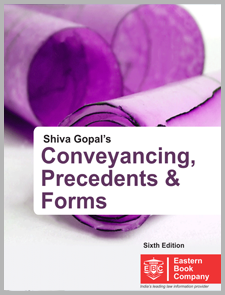 |
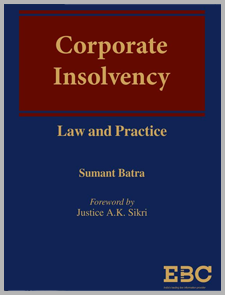 |
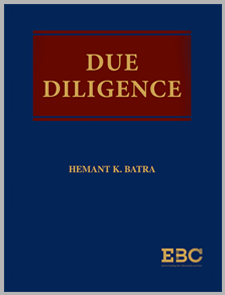 |
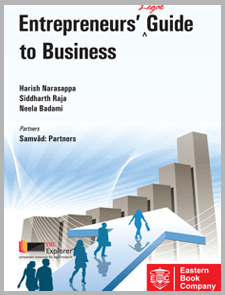 |
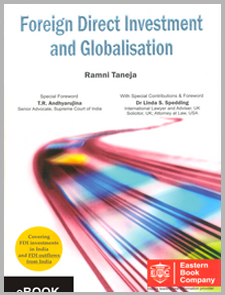 |
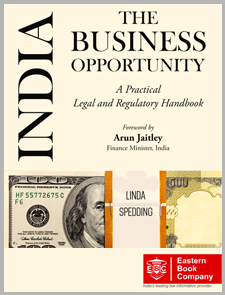 |
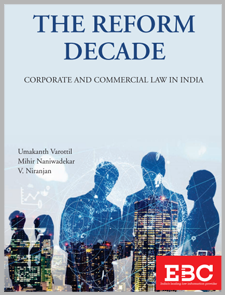 |
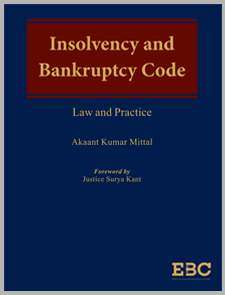 |
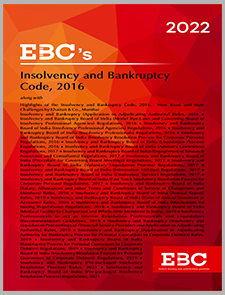 |
Instructors

Abhishek Sharma
Partner, Dentons LinkLegal
Abhishek Sharma has over 13 years of experience in handling disputes concerning the aviation sector (including airports) and civil and commercial disputes in various fora, including the Supreme Court of India. Previously, he was an associate in the law chambers of Mr Arun Jaitley, Senior Advocate.

Abhishek Swaroop
Partner, Saraf and Partners (Disputes Resolution Team)
Abhishek Swaroop is an advocate with a rich experience of about 18 years in handling complex corporate commercial litigations, with special focus on insolvency and bankruptcy, across various courts and tribunals in India. Abhishek is also a former Partner at Luthra and Luthra Law offices.

Amrish Garg
Co-Founder, Finvox Analytics
Amrish is a CA, CFA and a Registered Valuer with 12+ years of experience in fundraising, transaction support services, business valuations, purchase price allocation and complex instruments valuations.

Anuja Pethia
AOR, Supreme Court. Former Assistant Director, Ministry of Corporate Affairs
Anuja Pethia is an Advocate on Record, practising at the Supreme Court, NCLT/NCLAT. With over a decade of professional experience, she serves as a Partner at Swarnim Partners and Associates and holds the position of Standing Counsel for the Income Tax Department.

Biswajit Dubey
Advocate, Supreme Court. Former Partner, Cyril Amarchand Mangaldas
Biswajit Dubey has over 19 years of rich experience in the legal field. He is a former Partner at Cyril Amarchand Mangaldas in the Disputes Resolution Vertical and currently practises independently at the Supreme Court, NCLT/NCLAT.

Dr Charu Mathur
Instructor, EBC Learning & AOR, Supreme Court
Dr Charu Mathur is an Advocate on Record with the Supreme Court of India. She has over 20+ years of rich and diverse expertise in corporate, commercial, civil, criminal and constitutional law matters.

Gandharv Jain
Co-Founder, Finvox Analytics
Gandharv Jain is a CA, CPA (USA), Registered Valuer and an Investment Banker with 15+ years of experience in conducting business valuations, raising funds for clients and structuring corporate transactions in compliance with foreign exchange laws.

Noor Shergill
Advocate, Supreme Court. Former Assistant Official Liquidator, High Court of Bombay
Noor Shergill is an advocate practising at the Supreme Court, NCLT/NCLAT. He has over 10+ years of professional experience. He is Founding Partner of Swarnim Partners and Associates.

Vikash Kumar Jha
Partner, Cyril Amarchand Mangaldas
Vikash Kumar Jha is an Advocate on Record with over 13 years of extensive experience in Disputes Resolution practise at the Supreme Court and NCLT/NCLAT.
Certificate
Complete this course and exercises to earn a certificate. Share it with your friends, colleagues, and employers.*
*You must Subscribe to get a certificate.
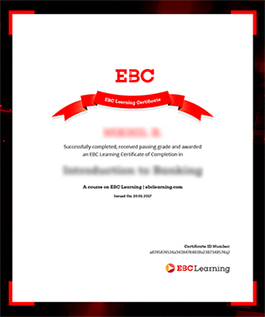
FAQs
-
What is EBC Learning?
EBC Learning is the educational arm of Eastern Book Company, a 80+ year-old company and India’s leading law publisher and provider of legal textbooks, EBC Reader, EBC Webstore, EBC Explorer, Supreme Court Cases (SCC) and SCC Online. -
Is there any entrance test for enrolment?
No, admission to the programme is conducted on a rolling basis, and there is no entrance test requirement. -
What are the minimum technical requirements?
Students who enrol are expected to have basic knowledge of Information and Communication Technology (ICT) and computer applications. Everyone should have a working webcam and microphone (either inbuilt or external). It is advised to have good internet speed. It is important to note that the EBC Learning LMS can be accessed through laptops or desktops via an internet browser such as Google Chrome. The ebclearning.com platform is not compatible with mobile devices. -
How long is one live session class?
A live session will be of approximately 60-90 minutes, including time for class discussions and faculty interaction. -
In addition to the sessions, how many hours of work are required per week?
A minimum of 8 hours of reading engagement is required. In addition, 2 hours per week would be required to watch Annex-Course video tutorials and solve class assignments. -
What if I miss a session?
Live recordings will be made available to you soon after the session. However, you will lose any marks allocated to Class Participation and In-Class Assignments. -
What is the minimum score to obtain a certificate?
One must score a minimum of 65% to get receive a certificate in the programme. -
What happens if I don't score 65%.
The EBC Learning programmes stand for academic excellence and mastery of the subject. Our team is dedicated to helping the student achieve that mastery. Therefore in order to successfully complete the programme one must score a minimum of 65%. However, in case one does not score a minimum of 65% students can, upon payment of a fee, be admitted to the next cohort of the programme. In limited cases, students can also re-submit their select assignments for re-evaluation. -
What is the cohort size of the programme?
We believe in the small group teaching format and so aim to keep the class size small. We would try our best to organise participants into small groups of students. -
Can I pay the tuition fees on a no-cost EMI basis?
No -
How will I be evaluated? Will there be an exam at the end of the programme?
There will be no end examination. You will be evaluated on a continual basis throughout the programme. You will be evaluated on pre-class assignments, class participation and final assignments for each course.
Limit Reached or Trial Expired
You have reached the limit of 2 audit enrollments or your trial period has expired.
